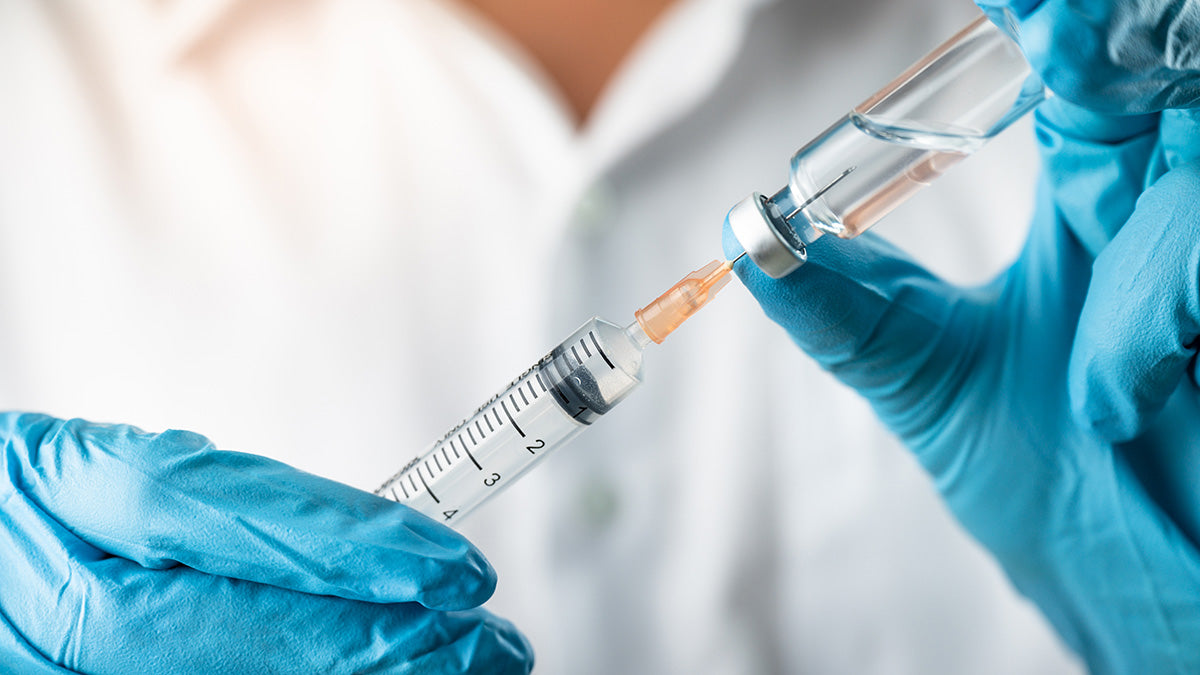The First COVID-19 Vaccines Are Coming

Last week, we reported the breaking news that the vaccine candidate BNT162b2, developed by Pfizer and BioNTech, shows evidence of efficacy against COVID-19. The data indicate a vaccine efficacy rate above 90 percent.
"I'm very confident that transmission between people will be reduced by such a highly effective vaccine - maybe not 90% but maybe 50% - but we should not forget that even that could result in a dramatic reduction of the pandemic spread," BioNTech co-founder Ugur Sahin told BBC. Sir John Bell, Regius Professor of Medicine at Oxford University, suggested life could be back to normal by spring.
Soon after the Pfizer/BioNTech announcement, the developers of Russia's COVID-19 vaccine, Sputnik V, announced that their vaccine has demonstrated 92 percent efficacy. This is based on a preliminary analysis.
These are very encouraging data. A vaccine with an efficacy of 90 percent protects 90 percent of those who have taken it. But, if widely used, it also protects everyone else by decreasing their exposure to the virus (herd immunity).
One advantage of Sputnik V is that freezing the vaccine at very low temperature is not needed. In contrast, that's an important requirement for the Pfizer/BioNTech vaccine.
Sputnik V was developed by the Gamaleya Research Institute and produced in cooperation with the Russian Direct Investment Fund (RDIF). Besides Russia, stage three clinical trials of the vaccine have been announced in the United Arab Emirates, India, Venezuela, and Belarus.
The Sputnik data is based on fewer people being vaccinated and fewer cases of COVID developing during the trial. However, the new data does confirm promising results from earlier research published in The Lancet, BBC News reports.
Reuters published a story with comments from renowned experts in the UK and other countries, ranging from cautious to enthusiastic.
Nations all over the world are securing stocks of the two vaccines. For example, the European Union is buying 300 million doses of the Pfizer/BioNTech vaccine, and a South Korean firm will make more than 150 million doses of the Sputnik V vaccine per year.
Finally, the latest breaking news is from biotechnology company Moderna. It has announced that a clinical trial of mRNA-1273, its vaccine candidate against COVID-19, suggests a vaccine efficacy of 94.5 percent. "The overall effectiveness has been remarkable … it's a great day," Tal Zaks, the chief medical officer at Moderna, told BBC News.
Antidepressant Prevents COVID-19 Complications
Researchers at Washington University have found that the drug fluvoxamine seems to prevent some of the most serious complications of COVID-19. Fluvoxamine is used commonly to treat obsessive-compulsive disorder (OCD), social anxiety disorder, and depression. A study is published in Journal of the American Medical Association.
The researchers compared the outcomes of those treated with fluvoxamine to the outcomes of those given an inactive placebo. After 15 days, none of the 80 patients who had received the drug experienced serious clinical deterioration. Meanwhile, six of the 72 patients given placebo (8.3%) became seriously ill, with four requiring hospitalization.
The researchers are persuaded that fluvoxamine could prevent many early COVID-19 patients from getting sick enough to require supplemental oxygen or to have to go to the hospital.
Synthetic Nanoparticle Eradicates Brain Tumors
Scientists at University of Michigan have developed a synthetic protein nanoparticle capable of delivering cancer-killing drugs directly to malignant brain tumors in laboratory mice. The discovery could one day enable new clinical therapies for treating glioblastoma, the most common and aggressive form of brain cancer in adults.
A research paper is published in Nature Communications. It indicates that the combination of therapeutic drugs and nanoparticle delivery methods used by the scientists is able to eradicate tumors and boost the immune system’s response to recurring tumors.
The therapy led to long-term survival in seven out of eight laboratory mice. When those seven mice experienced a recurrence of glioblastoma, their immune responses kicked in to prevent the cancer's regrowth.
Viable Combination Therapy Against Cancer
Researchers at Wyss Institute for Biologically Inspired Engineering at Harvard have developed a new cancer therapy. It offers new hope for the treatment of a wide range of cancers.
The new therapy combines the cancer-killing power of chemotherapy and the long-term efficacy of immunotherapy. Together, they form a biomaterial-based cancer vaccine that can be injected adjacent to a tumor site.
The vaccine successfully treated immune-resistant breast cancer in mice. This is reported in a study published in Nature Communications. 100 percent of the mice survived a second injection of cancer cells, indicating long-term immunity with no side effects.
The researchers describe the new approach as an entirely new form of combination chemotherapy. It could be administered through a single injection with much lower toxicity than conventional treatments used today.
More Articles
Don't miss a beat! In our Pulse Newsletter, Thrivous curates the most important news on health science and human enhancement, so you can stay informed without wasting time on hype and trivia. It's part of the free Thrivous newsletter. Subscribe now to receive email about human enhancement, nootropics, and geroprotectors, as well as company news and deals.
Read more articles at Thrivous, the human enhancement company. You can browse recent articles in Thrivous Views. See other Pulse Newsletter articles. Or check out an article below.
-
Melatonin May Support a Healthy Immune System
According to a new study out of the Cleveland Clinic, melatonin is associated with lower rates of infection with SARS-CoV-2, ...
-
How to Reduce Negative Effects of Social Media
Psychologists at University of British Columbia have analyzed how people use three major social platforms: Facebook, Twitter, and Instagram. And ...


